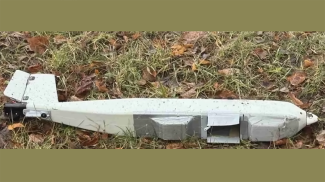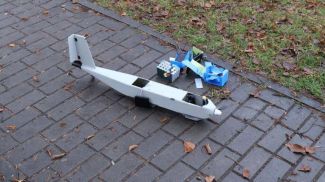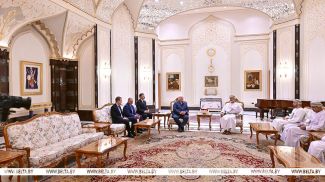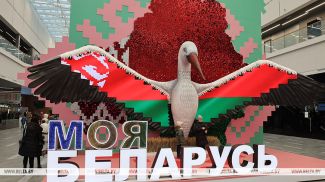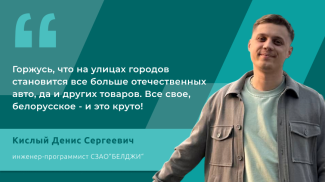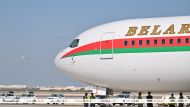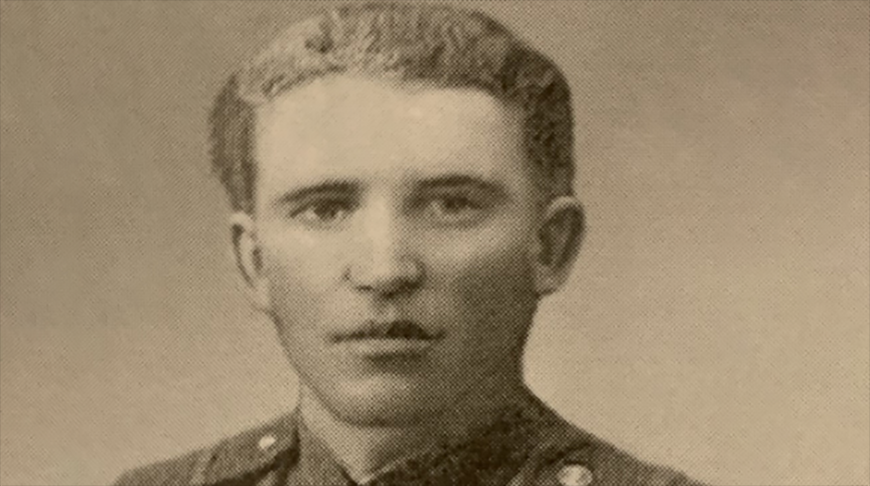
News of the story
"Victory Parade: Stories and Faces"
In the run-up to the 80th anniversary of the Victory in the Great Patriotic War, the Belarusian news agency BelTA together with the 7 Days newspaper launched a large-scale project. During the year we will be narrating the stories of the Belarusians who took part in the legendary Victory Parade in 1945. These men fought at Rzhev and Odessa, won the battles of Stalingrad and Kursk, liberated Belarus, and took Berlin. On 24 June 1945 they marched triumphantly through Red Square in Moscow. They are the faces of our great Victory!
When we talk about the Great Patriotic War, we most often imagine brave tankers, infantrymen or pilots. However, there was another branch of the armed forces that also played an important role in achieving the victory over Nazism: the cavalry. We tracked down the family of one of the veteran cavalrymen in Oktyabrsky District, Gomel Oblast. Fyodor Vorobyov fought in the Great Patriotic War from the first to the last day. On 24 June 1945, the guardsman rode a horse across Red Square as a member of the cavalry squadron of the composite regiment of the 1st Ukrainian Front.
A cavalryman of his own free will
Fyodor Vorobyov's family is well-known in the agro-town of KrasnayaSloboda. The veteran's two daughters live here, his grandchildren and great-grandchildren often come to visit. Older people knew Fyodor Vorobyov well (he died in 2002). They remember him as a hard-working man and excellent manager. But very little is known about the military exploits of Guards Corporal Vorobyov.
“He was a very humble man. He rarely talked about the war. Whenever he would start recollecting the war years, he would get very emotional,” Valentina Yakovets, the veteran's eldest daughter, said with tears in her eyes. Even after 80 years, the war is still a painful memory for this family.
Fyodor Vorobyov lived in Krasnaya Sloboda all his life. From the age of 18 he worked in the collective farm as a head of a horse farm. When in October 1940 he was drafted into the army, he took his horse to serve in the cavalry.
Fyodor Vorobyov’s daughter keeps clippings from old newspapers, which tell about her father's path during the war. Unfortunately, thereisverylittleinformation. However, all the documents say: "The soldier was in Moldova when the Great Patriotic War broke out, and his first battle was on the Prut River, where he helped blow up a bridge." This means that the veteran joined the war from the first days or perhaps even hours.
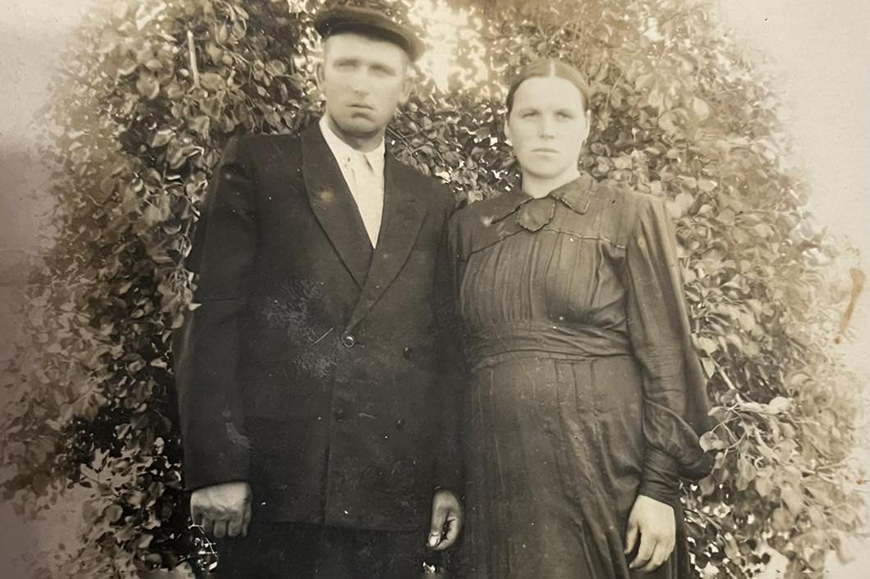
The Prut River ran along the border of the USSR, thus, it was strategically important. The fascists tried to cross the river at dawn on 22 June 1941. Their plan was to take weapons and equipment to the opposite bank in order to continue the offensive, so the fight for the bridges was crucial. Trying to hold off the enemy, our soldiers, among whom was Fyodor Vorobyov, burned the bridges to the ground. According to historians, the Red Army held an outpost on the Prut River for 11 days, killing almost 2,000 German soldiers and officers. Those were the greatest losses the enemy incurred on the Soviet borders in the first days of the war.
Then came the long months of retreat: the Dnieper River, the Korocha station in Belgorod Oblast... After some time, Fyodor Vorobyov was transferred to Moscow Oblast, and from there he advanced together with our troops in the area of Kaluga and Mozhaisk. The Battle for Moscow was seen as a crunch point of the war, and the young soldier also took part in it. The cavalryman was also involved in horse raids behind enemy lines in Bryansk forests. That's how the veteran recalled this period of the war: "Our cavalry was sent to Bryansk forests to break through, to strike the enemy from the rear. I was surrounded and spent six months behind enemy lines until our troops arrived. At first, Belov was the commander of the corps, and later Baranov took over from him and ran the corps till the very end of the war. The corps was always part of the 1st Ukrainian Front. The enemy was well armed, throwing many tanks into battles. It was not easy, but against all the odds, the offensive continued."
Near Kiev, Fyodor Vorobyov received a concussion. After treatment, he returned to the division, participated in the liberation of Kiev, Korosten, Zhitomir, and crossed the Vistula. In 1944 he sustained another wound, this time in the leg. The cavalryman was treated in a hospital in the German city of Leipzig, and as soon as he recovered, he returned to service, continuing to fight the enemy on its territory. In Germany, Fyodor Vorobyov's cavalry penetrated 200 km into the enemy's rear.
Two Medals for Courage
Among Fyodor Vorobyov’s numerous awards are two Medals for Courage, which he received only a few months apart. Private First Class Vorobyov was awarded the first one for repelling the enemy’s attack as part of a gun detachment on 3 April 1944, killing 15 enemy soldiers and officers.
He got his second medal for the feat committed on 1 August 1944. According to the decoration order, the enemy pushed back our squadrons during the battle. It was impossible to move the gun on hands to another supporting position because of unstable ground. Then Fyodor Vorobyov carried it on horseback under enemy fire to an open support position. Thanks to this, an enemy infantry attack was repelled and up to 20 German soldiers and officers were killed.
He was in Germany when the war ended. On 24 June 1945 he participated in the Victory Parade as part of a cavalry squadron of the composite regiment of the 1st Ukrainian Front.
Fyodor Vorobyov never boasted about his feats and medals. He hardly ever talked about the parade, too.
“Only once I heard him talking about the events on Red Square. During a TV broadcast featuring the very parade of 1945 and a cavalry squadron on Red Square, the grandfather said: “I was in that column, too,” the war veteran’s grandson Aleksandr Yakovets recalled. He himself is a former military serving in the special forces in Afghanistan from May 1985 to November 1986. He was a squad commander, provided government communication with the Soviet Union and Kabul.
Frontline soldiers talked little about the war
The war veteran shared his story about the parade with Grigory Lutskovich, a local resident and former chairman of the Krasnaya Sloboda Rural Council.
“He said that that the soldiers had spent weeks preparing for the parade. They cleaned and ironed their uniforms, practiced dressage, and trained their horses to march in sync,” Grigory Lutskovich said. “Those were the very horses which cavalrymen led into battles during the war.”
Fyodor Vorobyov returned to his hometown only in 1946, but instead of a homecoming party, he found a funeral waiting for him. His mother, who had not seen her son for six long years, had passed away a day before he arrived. By then his father was also dead: he was executed by the Germans during the war. His family still does not know where his grave is.
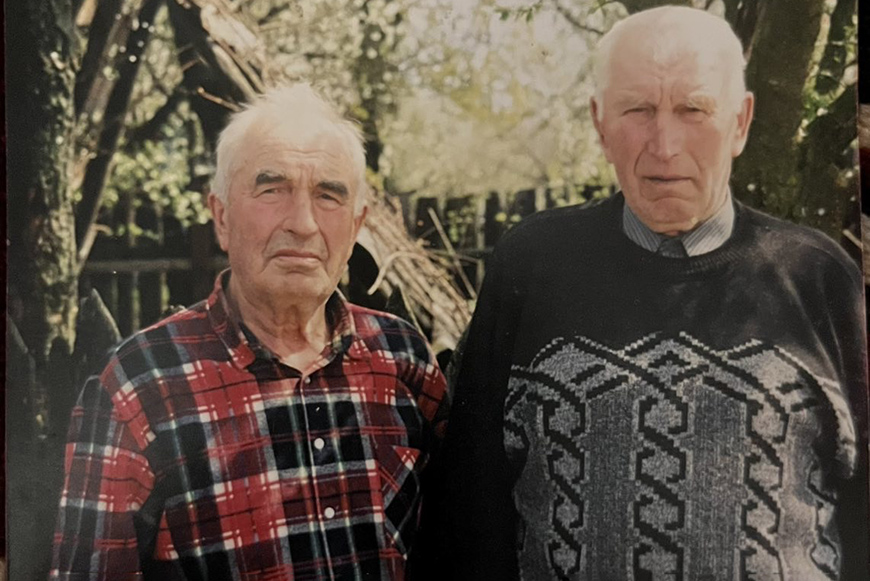 Fyodor Vorobyov was awarded two Medals for Bravery, Medal for Excellence in Military Service, Medal for the Defense of Moscow, Medal for the Capture of Berlin, Medal for the Victory over Germany, Medal of Zhukov and the Order of the Patriotic War First Class. All in all, he received 12 awards. But almost no one in his hometown knew about his military merit: people of that generation did not like to boast. Fyodor Vorobyov lived modestly and worked on the collective farm in his village until his retirement: first as a chairman, then as a farm manager. Together with his wife they raised five children. For some time he and GrigoryLutskovich worked together on the farm.
Fyodor Vorobyov was awarded two Medals for Bravery, Medal for Excellence in Military Service, Medal for the Defense of Moscow, Medal for the Capture of Berlin, Medal for the Victory over Germany, Medal of Zhukov and the Order of the Patriotic War First Class. All in all, he received 12 awards. But almost no one in his hometown knew about his military merit: people of that generation did not like to boast. Fyodor Vorobyov lived modestly and worked on the collective farm in his village until his retirement: first as a chairman, then as a farm manager. Together with his wife they raised five children. For some time he and GrigoryLutskovich worked together on the farm.
“I was discharged in 1973 and returned to the village. I started working on the collective farm. Fyodor Vorobyov and I worked together there for a while: I was in charge of the dairy cows herd, and he of the calves. We got along well, he knew my father very well too. But he rarely spoke about the war. I knew that Fyodor was a cavalryman. He told me a little about the parade. That is probably all. Frontline soldiers who survived the Great Patriotic War tried not to recall those events. It was not common for them to talk about the war. My father was the same. We as the post-war generation did not hear many stories from them, but we saw their tears when we tried to talk about it," GrigoryLutskovich said. "He was a kind-hearted person, a true man of the land. Everyone in the village had a high regard for his family."
It is clear why the frontline soldiers did not want to talk about the Great Patriotic War, and they had the right to do so. It was a cruel and terrible war that took too many lives. But we bear this responsibility: we must remember their feats and share their stories with the world to avoid repeating what our veterans experienced.
Yulia GAVRILENKO,
7 Days newspaper
Photos courtesy of Fyodor Vorobyov's family




